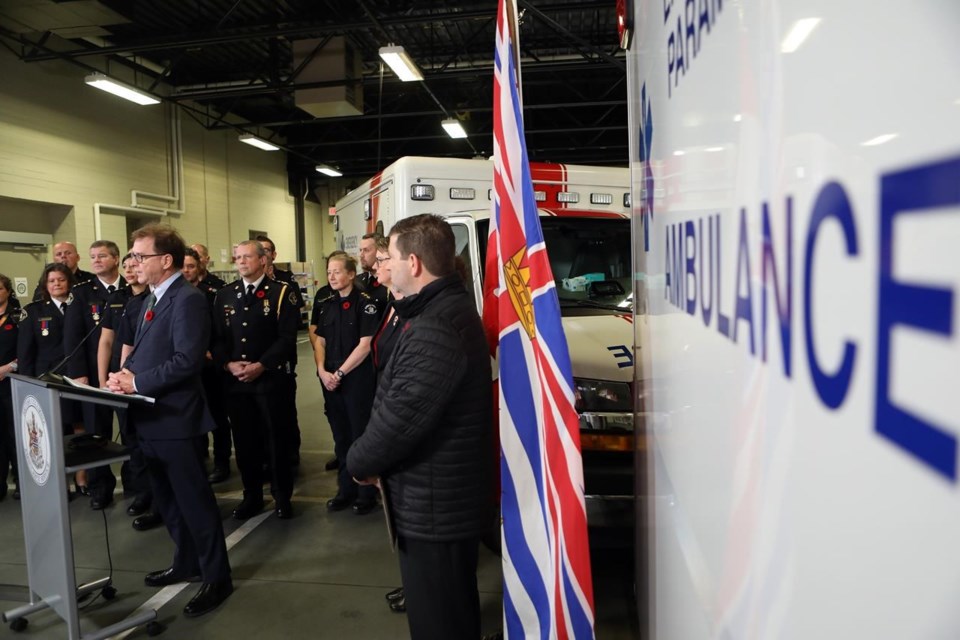VICTORIA — British Columbia is shifting its ambulance paramedics staffing model for 60 rural and remote communities in what Health Minister Adrian Dix says is an "unprecedented" investment in emergency health care.
Dix says three new staffing models for paramedics would increase the number of on-duty ambulance workers during nights and other off-peak times.
The shift will add 271 new full-time paramedic positions and part-time workers whose combined hours will equal 238 full-time workers for three separate models that will give flexibility for ambulance needs in each community.
Dix says the changes come after consultations with the province's paramedics union, community leaders, First Nations and health-care professionals.
BC Emergency Health Services chief ambulance officer Leanne Heppell says the flexibility is needed because "one model just doesn't work that well across the province," given the differences in the communities' population, demographics and overall demand.
Dix says B.C. needs more community paramedics and ambulance workers, and he urged those interested in the work to reach out while the province hires staff to fill the demand.
This report by The Canadian Press was first published Nov. 9, 2023.
The Canadian Press
Note to readers: This is a corrected story. A previous version said 261 full-time positions would be added. In fact, it is 271.



